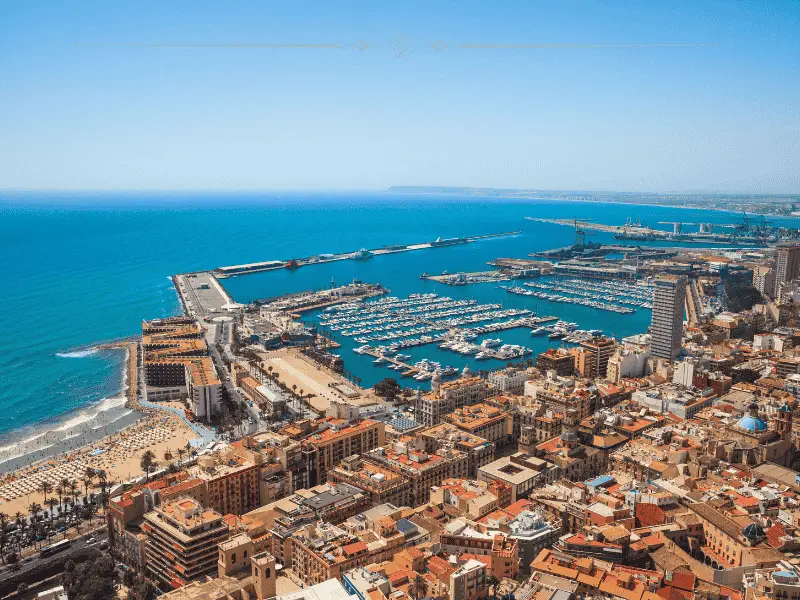A groundbreaking initiative in this Spanish touristic town aims to restore peace to residential areas while balancing tourism demands.
The picturesque coastal city of Alicante, nestled along Spain’s sun-drenched Costa Blanca, is implementing comprehensive new regulations to address growing concerns about nighttime noise pollution. The measures, focusing on the city’s vibrant hospitality sector, represent a significant shift in how Spanish tourist destinations are managing the delicate balance between visitor entertainment and resident well-being.

The recently approved legislation introduces a tiered system of operating hours that will reshape the city’s nightlife landscape. Under the new framework, traditional bars and restaurants must conclude their operations by 12:30 AM on weekdays, with a modest extension to 1:00 AM for weekends and the evenings before national holidays. Nightclubs face similar restrictions, with mandated closures at 1:00 AM during the week and 3:00 AM on weekends.
The regulations specifically target two areas designated as Acoustically Saturated Zones (ZAS) within Alicante. These zones, encompassing the historic Old Town and the bustling Calle Castaños district, have been identified as particular hotspots for noise-related issues. The designation follows careful analysis of sound levels and their impact on local residents.
The initiative extends far beyond simple time restrictions. In a move that particularly affects the Mediterranean outdoor dining culture, the city is implementing a 50% reduction in terrace capacity. Establishments must ensure their outdoor areas are cleared a full half-hour before closing time, creating a gradual wind-down of evening activities rather than an abrupt closure.
In a forward-thinking approach to prevent further saturation of entertainment venues, the city has implemented a temporary freeze on new business licenses across a broad spectrum of hospitality establishments. This moratorium affects not only bars and restaurants but extends to nightclubs, cafes, karaoke venues, and even bingo halls, demonstrating the comprehensive nature of the city’s approach.
Local law enforcement will play a crucial role in ensuring compliance with the new regulations. Police presence will be increased during closing hours to oversee the orderly dispersal of patrons and ensure establishments adhere to the new schedule. This includes monitoring the clearance of outdoor terraces and preventing congregation in the affected areas after hours.
The regulations also affect businesses that have traditionally operated around the clock. Twenty-four-hour establishments within the designated zones must adjust their operating hours to comply with the new framework, representing a significant shift in their business model. This comprehensive approach ensures that all aspects of nighttime commerce contribute to noise reduction efforts.
Alicante’s initiative reflects a wider movement across Spain to address challenges posed by mass tourism. Cities nationwide are grappling with similar issues, from overcrowding to resource strain and housing accessibility. Major tourist destinations like Barcelona and Malaga have already implemented their own measures, particularly focusing on short-term rental regulations.
The new regulations align with growing awareness of environmental and social sustainability in tourist destinations. By managing noise pollution, the city addresses not only immediate quality-of-life concerns but also contributes to the broader goal of sustainable tourism development. The measures acknowledge the need to preserve the character and livability of residential neighborhoods while maintaining tourist appeal.
While the regulations represent significant changes for local businesses, they are designed to create a more sustainable long-term model for tourism and hospitality. The structured approach to operating hours and capacity may help establish a more predictable and manageable environment for both businesses and residents.
The implementation of these measures requires adaptation from various stakeholders. Residents, business owners, and tourists must adjust to the new rhythm of city life. The success of the initiative will largely depend on community cooperation and the ability of businesses to modify their operations while maintaining viability.
The timing of the implementation, scheduled before the peak spring tourist season, allows businesses to adapt their operations during a relatively quieter period. This strategic timing demonstrates consideration for the practical challenges of implementing such significant changes in a tourism-dependent economy.
To support the transition, the city is developing additional infrastructure and services to help businesses adapt to the new requirements. This includes clear signage, information campaigns, and support for establishments seeking to modify their business models in response to the new regulations.
The measures represent more than just regulatory change; they signal a cultural shift in how Spanish cities approach tourism and nightlife. By prioritizing resident well-being alongside tourist experiences, Alicante is helping to define a new model for sustainable urban tourism.
This comprehensive approach to managing nightlife and tourism impacts demonstrates Alicante’s commitment to maintaining its appeal as a tourist destination while ensuring the quality of life for its residents. As other Spanish cities watch closely, these measures may serve as a template for similar initiatives across the country’s popular tourist destinations.




